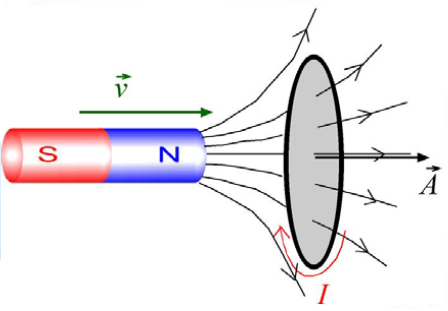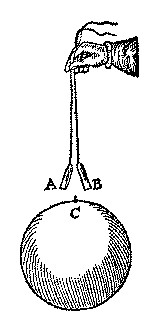Induced magnetism
Induced magnetism is a non-magnetized magnetic material coming into contact with a pole of a permanent magnet. Consequently, the unmagnetized material becomes a magnet. As soon as the magnetic field disappears, the magnetism of the magnet is lost. Induced magnetism is known because magnetism is induced in material that lacks magnetism.
The magnetic domains inside are aligned for a moment in the direction of a magnetic field external to them.
The induced magnetization is proportional to the magnetic field strength of the magnet inducing the magnetism, i.e. the stronger the original field strength, the more magnetization is induced.
The magnetic field strength can be known from Faraday's law.
Magnetic induction is the measure of the concentration of the magnetic flux. Magnetic flux is the number of magnetic field lines on a surface. To obtain the magnetic induction we must apply the following formulae:
- In the case of a magnetic medium:
B = µ-H
- - In the case of a vacuum:
B0 = H
To know the magnetic flux we must apply:
Φ = magnetic flux
B = magnetic field in Tesla
S = surface area
Induced magnets
Induced magnets are elements that possess induced magnetism. Temporary or induced magnets are made of soft magnetic materials such as iron, cobalt, and nickel. Temporary or induced magnets can be magnetized and demagnetized, a basic example being an electromagnet or coil. The induced current is the current type of electromagnetic induction. This happens when an electric current, by changing its potential from its polarity
Difference between an induced magnet and a permanent magnet
On the one hand, an induced magnet is a temporary magnet that can only hold a magnetic charge for a moment after it has been subjected to a magnetic force. On the other hand, a permanent magnet always holds its charge and never loses it.
The most common examples of induced magnetism are:
- Paper clips
- Electric batteries
- Generators
- Transformers
Gilbert's experiment and induced magnetism
Gilbert placed two parallel bars of iron on a sphere through chains. Observing it, he noticed that the two bars repelled each other.











